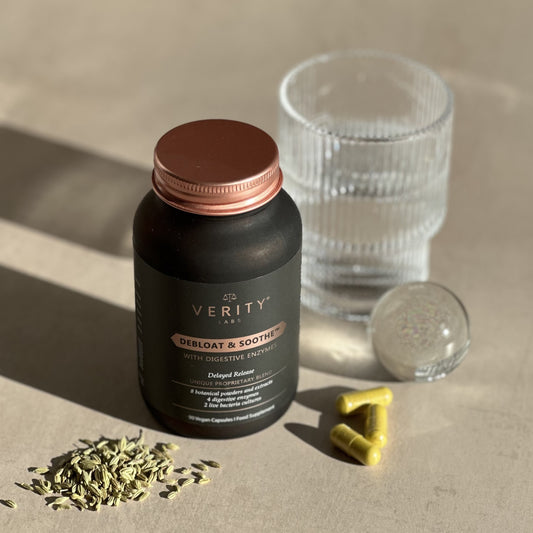From adolescence to menopause and beyond, female hormones orchestrate a symphony of changes within the body, influencing everything from mood and energy levels to reproductive health. Understanding these hormonal fluctuations and learning how to navigate them can empower women to take control of their well-being and embrace each stage of life with confidence. In this article, we look into the complexities of female hormones, exploring their roles, common fluctuations, and strategies for managing hormonal changes effectively, including the unwelcome arrival of premenstrual syndrome (PMS). Characterized by an array of physical and emotional symptoms, PMS can cast a shadow over daily life, disrupting routines and dampening spirits.
The Role of Female Hormones:
Female hormones, including oestrogen, progesterone, and testosterone, play a pivotal role in regulating various physiological processes throughout a woman's life. These hormones influence:
- Menstrual Cycle: Oestrogen and progesterone levels fluctuate during the menstrual cycle, governing ovulation, menstruation, and fertility.
- Reproductive Health: Female hormones are crucial for maintaining reproductive health, supporting the development of the reproductive organs, regulating menstrual cycles, and facilitating pregnancy.
- Mood and Emotions: Hormonal fluctuations can impact mood and emotional well-being, contributing to symptoms like irritability, mood swings, and anxiety.
- Bone Health: Oestrogen plays a key role in maintaining bone density and strength, protecting against osteoporosis and bone fractures.
- Metabolism: Hormones influence metabolism, energy levels, and body composition, affecting weight management and overall energy balance.
Common Hormonal Fluctuations:
Throughout a woman's life, hormonal fluctuations occur in response to various factors, including age, stress, lifestyle, and reproductive events. Some common hormonal fluctuations include:
- During puberty, oestrogen levels rise, triggering the development of secondary sexual characteristics, such as breast development and the onset of menstruation.
- Hormone levels fluctuate throughout the menstrual cycle, with oestrogen and progesterone rising and falling in preparation for ovulation and menstruation.
- Pregnancy is characterised by significant hormonal changes, including elevated levels of oestrogen and progesterone to support foetal growth and development.
- Perimenopause, the transitional phase leading up to menopause, is marked by fluctuating hormone levels and irregular menstrual cycles as the ovaries gradually produce less oestrogen and progesterone.
- Menopause occurs when a woman ceases to menstruate permanently, typically around age 45 to 55, as oestrogen and progesterone production declines.
Understanding PMS: What is Premenstrual Syndrome?
Premenstrual syndrome, commonly known as PMS, refers to a collection of symptoms that occur in the days or weeks leading up to menstruation. These symptoms typically subside shortly after menstruation begins. While the severity and specific symptoms can vary widely from woman to woman, some of the most common manifestations of PMS include:
Mood Swings: Feelings of irritability, moodiness, or heightened emotional sensitivity.
Physical Discomfort: Bloating, breast tenderness, headaches, and abdominal cramps.
Fatigue: Persistent feelings of tiredness or low energy levels.
Changes in Appetite: Food cravings, particularly for sugary or salty foods, or changes in appetite.
Sleep Disturbances: Difficulty falling asleep, staying asleep, or experiencing restless sleep.
Exploring the Causes of PMS: What Triggers These Symptoms?
While the exact causes of PMS remain elusive, researchers believe that hormonal fluctuations play a significant role in its onset and severity. During the menstrual cycle, hormone levels, particularly oestrogen and progesterone, undergo dynamic changes. In some women, these hormonal shifts may trigger alterations in brain chemistry, leading to the manifestation of PMS symptoms. Other factors that may contribute to PMS include:
- Serotonin Levels: Fluctuations in serotonin, a neurotransmitter that regulates mood and emotions, may influence the onset of PMS symptoms.
- Stress: Chronic stress can exacerbate PMS symptoms by disrupting hormone balance and amplifying emotional reactivity.
- Nutritional Factors: Diet and nutritional deficiencies may impact hormone regulation and contribute to the severity of PMS symptoms. For example, inadequate intake of certain vitamins and minerals, such as magnesium and B vitamins, has been linked to worsened PMS symptoms.
- Lifestyle Factors: Poor sleep habits, lack of exercise, and excessive caffeine or alcohol consumption may exacerbate PMS symptoms by disrupting hormone balance and increasing stress levels.
Seeking Relief: Strategies for Managing PMS Symptoms
While PMS can pose significant challenges, there are various strategies that women can employ to alleviate symptoms and improve overall well-being. These include:
Healthy Lifestyle Habits: Prioritize regular exercise, adequate sleep, and a balanced diet rich in fruits, vegetables, whole grains, and lean proteins.
Stress Management Techniques: Practice stress-reducing activities such as meditation, deep breathing exercises, yoga, or spending time in nature to promote relaxation and emotional balance.
Dietary Modifications: Limit consumption of caffeine, alcohol, and processed foods, and increase intake of foods rich in vitamins, minerals, and omega-3 fatty acids.
Supplementation: Consider supplements such as magnesium, calcium, B vitamins, and omega-3 fatty acids, which may help alleviate PMS symptoms.
Medical Intervention: In severe cases, medical interventions such as hormonal birth control or antidepressant medications may be prescribed to manage PMS symptoms.
Navigating the Challenges of PMS with Understanding and Compassion
While PMS may present formidable challenges for many women, understanding its symptoms and potential causes is a crucial step toward finding relief. By adopting healthy lifestyle habits, practicing stress management techniques, and seeking appropriate medical guidance when needed, women can navigate the complexities of PMS with greater ease and resilience. With patience, self-care, and support, it's possible to reclaim control over hormonal health and embrace each menstrual cycle with grace and vitality.
References:
https://www.rcog.org.uk/media/mcreb5ix/pi-managing-premenstrual-syndrome-pms.pdf
https://www.ncbi.nlm.nih.gov/books/NBK279265/
https://www.sciencedirect.com/science/article/pii/S0213911121003101
https://www.ncbi.nlm.nih.gov/pmc/articles/PMC3118460/
https://www.ahajournals.org/doi/10.1161/HYPERTENSIONAHA.107.107136
















